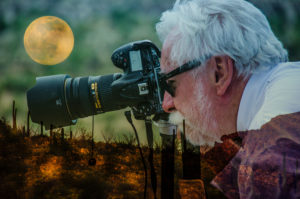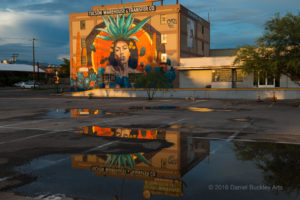Strategies for creative success
 Strategies for creative success
Strategies for creative success
(Click image to enlarge)
- Educate yourself. Continue studying your craft every day. There is always more to learn, especially where technology intersects with your work.
- Develop habits that save time and grief. As a film maker, my most useful habit is always asking anyone I interview to speak and spell their name first thing when I start filming them. This also allows me a few seconds to get a natural voice settings, but mostly it’s about putting key information in a standard spot. Another example is the way I always organize my camera bag so that every piece of gear is put back in a specific spot. When I need something I know exactly where it is. Once habits like this are developed you’re always ready to move forward with confidence. For artists in other media the habits might include how you array your tools and brushes, how you clean your tools, etc. Working in your field will inform the habits you should cultivate. Consistency is key.
- Work simultaneously on several projects. The cross-talk between unrelated projects gives you insights that always filter back into your main work. In addition to film making I am always working on still photography and sound projects. Visualize and take steps toward your next major project while you work on the current one.
 Work every day. Some days you may do more, some less, but try to get at least something done every day.
Work every day. Some days you may do more, some less, but try to get at least something done every day.- Find joy in what you do. If it doesn’t make you happy why are you doing it? Financial success is fleeting and rare. Joy need not be.
- Cultivate friendships with other creative folks. Nothing helps more than sharing what you do and collaborating with others. New perspectives are always key to creative success.
- Learn a language other than your own. Another way of developing new perspectives and expanding and sharpening your mind.
 Take care of your body, mind and spirit. There is only one of you, and if you’re not firing on all cylinders you’re holding yourself back. You don’t have to be fanatical about it, but strike a healthy balance of work, exercise, reading, and other expansive activities.
Take care of your body, mind and spirit. There is only one of you, and if you’re not firing on all cylinders you’re holding yourself back. You don’t have to be fanatical about it, but strike a healthy balance of work, exercise, reading, and other expansive activities.- Involve yourself in projects that push your limits. What’s the point of doing what you know how to do over and over? Failure often leads to spectacular progress. And neither comes without trying new things.
- Take time for you when you feel you need it. Nobody knows what’s going on within you like you. Sometimes you just need to back away in order to reengage stronger down the line.
- Sleep. Nothing repairs your body, keeps up the immune system and energizes your work like sleep. All of us get out of whack when a big project is about to culminate. Remember to take time to rest wherever you can. So much more will get done.
- Dream. Dreaming is huge to creative folks. Put together lists of what you might do if you had unlimited funds, and gradually make your dreams happen.
 Observe and experience the world around you. Engorge your senses. See how light and shadow reveal the world. Hear the sounds of nature, industry and silence. Touch the many textures of your world. Feel the warmth of the sun on your skin and the chill of winter. Nothing moves the creative juices like the experience of the real world.
Observe and experience the world around you. Engorge your senses. See how light and shadow reveal the world. Hear the sounds of nature, industry and silence. Touch the many textures of your world. Feel the warmth of the sun on your skin and the chill of winter. Nothing moves the creative juices like the experience of the real world.- Plot out your life on multiple fronts. Look ahead to what anniversaries might be coming up in upcoming years, and how they might intersect with your work. Map out festivals, workshops and other important events coming up.
- Develop goals, and strategies to meet them. Neither works without the other.
- Keep a journal of your progress. Every day jot down some of the key things you got done in your work and in your life.
 Take stock of your accomplishments and review your work periodically. It’s a good idea at the end of the year to look back at the accomplishments you noted in your journal. This will help you update your resume, see trends in your work, and map out strategies for the year ahead.
Take stock of your accomplishments and review your work periodically. It’s a good idea at the end of the year to look back at the accomplishments you noted in your journal. This will help you update your resume, see trends in your work, and map out strategies for the year ahead.- Know your strengths and weaknesses. Refine your skills often. Work on turning weaknesses into strengths.
- Be limber: You’ll never survive the gale force winds of change if you don’t learn to bend. Be willing to embrace shifting circumstances and gradually turn them to your design. Let disasters in your life become lessons that inform your work, and your work will always speed your recovery from them.
- Revisit older work: Doing so gives you perspective on your artistic growth. See how you solved problems in the past and compare that to what you can do now. You may even find that you had a great idea a while back, and now know how to follow through on it.
- Know your worth. Don’t be afraid to ask for it in financial dealings. Likewise, don’t be afraid to walk away from a deal that doesn’t pay you what you know you should be paid. Other things will come up. Doing a favor for someone of limited means who is starting out is one thing. Being taken advantage of is another.
- Experiment. Let your art be your chemistry set. Take cues from things you see and experience in your life. Combine the unlikely to find new visions.
-
Serve your community. Few things pay bigger dividends (not least of all personal satisfaction) than helping your community. There are so many ways to do so. Find what works for you, and you’ll discover that the support goes both ways.
- Be patient. Huge point. Nothing comes quickly. Identify a path and keep moving in that general direction, even if you have to take a different route along the way. In time you’ll get to where you need to be.
- Be generous with others. Share your talents and especially your knowledge freely. When you stop looking at others as competition you free yourself up to be a better person and artist.
- Be grateful. Express gratitude to those who help you. A few meaningful words from you might be all the encouragement someone else needs. And people always are willing to go the extra mile for those who express gratitude for their help.
- Communicate. Probably the most important thing in life. Communicate with your audience, your friends, your family, your loved ones. The more you hold back the more likely missteps are to happen.
-
Look to others for inspiration. None of us holds the world’s secrets. Look at other people’s work. Read. Attend lectures and films. Be inspired by what others do and it will likely be reflected in more inspirational work from you. While you’re at it, let people know that you find their work inspirational. You just might become a catalyst for better work from them.
- Be compassionate, and love. Have empathy for the struggles of others, and do your best to help those less fortunate. Express your love through your work and through the way you live your life.
- Maintain a sense of humor. Bad stuff is going to happen along the way. The more you can laugh about it, the faster you will snap back from it.
 Evolve. Your experiences of life, love, loss, grief, elation, celebration, etc. become the stuff of your art as you progress. Know that your work is better now than it was five years back and worse than it will become five years from now. Or at least different from how it will be five years from now. Life packs surprises along the way, not all of which are pleasant. Use your art to move through the ones that aren’t.
Evolve. Your experiences of life, love, loss, grief, elation, celebration, etc. become the stuff of your art as you progress. Know that your work is better now than it was five years back and worse than it will become five years from now. Or at least different from how it will be five years from now. Life packs surprises along the way, not all of which are pleasant. Use your art to move through the ones that aren’t.- Enjoy your life, already in progress. Don’t sweat the things that didn’t happen. Celebrate the ones that did.


